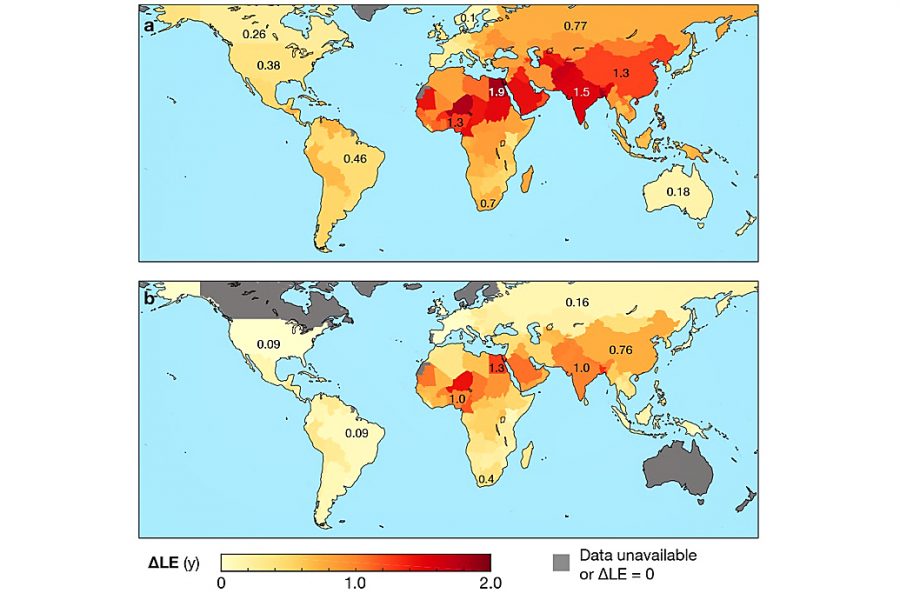Air pollution has lowered the global human life expectancy by more than a year, according to a UT study released Wednesday.
The study, led by engineering professor Joshua Apte, was the first of its kind where researchers looked at data on air pollution and lifespan together. Results were the worst in South Asia, where air pollution shortens more lives than all types of cancer combined.
“On average around the world, lives are shortened by over a year due to ambient air pollution,” Apte said in a statement. “In many countries in South Asia, especially in India, there is a really big loss — more than 1.5 to 1.75 years — when we look at life expectancy.”
Apte said in addition to looking at outdoor air pollution, the team looked at outdoor ozone pollution and indoor sources such as cooking and heating.
“South Asia is in a particularly unfavourable position since household air pollution, which is a problem of poverty, and outdoor pollution, which is a problem of industrialization, are both major issues,” Apte said.
UT Engineers for a Sustainable World work on projects to combat air pollution such as aquaponics, a combination of aquaculture and hydroponics, mechanical engineering senior Kirstie Yong said.
“For aquaponics, because we are using fish waste as our fertilizer to grow plants, we don’t have to worry about any nitrogen in fertilizer,” Yong said. “With this locally grown food, you cut out the CO2 emissions from 18-wheelers transporting food thousands of miles away.”
Kate Shirley, a UT Microfarm project leader, said there are various ways students can get involved to help protect the environment on a local level.
“Microfarms and urban green spaces help make cities a lot more habitable,” geography senior Shirley said. “(Support) Austin Parks Foundation or (support) projects like the microfarm either politically or with your time and money, and volunteer and take care of the green spaces, because green spaces do so much for us.”
Apte said this study puts the air pollution problem into understandable terms.
“Saying 90,000 Americans or 1.1 million Indians die per year from air pollution is large, but faceless,” Apte said. “Saying that, on average, a population lives a year less than they would have otherwise — that is something #relatable.”





















